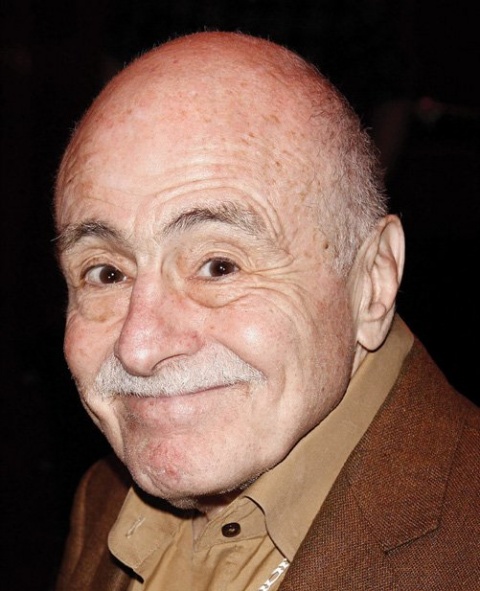Columbia College | Columbia University in the City of New York
William L. “Billy” Goldenberg ’57, TV, Film and Stage Composer

Billy Goldenberg ’57 collaborated with Elvis Presley, Barbra Streisand and Diana Ross; wrote the themes for many TV series, including Kojak and Rhoda; composed the pilot scores for Night Gallery and Columbo; and won Emmys for the TV movie Queen of the Stardust Ballroom and the miniseries e Lives of Benjamin Franklin; King; and Rage of Angels.
With lyricists Marilyn Bergman and Alan Bergman, Goldenberg expanded his 1975 Queen of the Stardust Ballroom score into the score of the 1978 Broadway musical Ballroom, directed and choreographed by Michael Bennett, of A Chorus Line fame. It earned eight Tony nominations, including Best Musical.
Following that collaboration, Alan Bergman told Variety: “Billy was one of the rare composers who was also a dramatist. Lots of people can write melodies, but you could tell Billy the situation, what the characters were feeling, and his music would reflect that.”
Goldenberg died on August 4, 2020, in New York City. He was 84.
Born on February 10, 1936, in Brooklyn, N.Y., William L. Goldenberg grew up with music as the son of a violinist mother and percussionist father. He began playing piano at 5 and became a protege of Broadway songwriter Frank Loesser (Guys and Dolls). Jobs as a rehearsal pianist led to dance arrangements, orchestrations for TV shows like Hullabaloo and music for acts including Mike Nichols and Elaine May.
Goldenberg moved to Hollywood in late 1968 and scored many of television’s most important films, garnering 25 Emmy Award nominations. He was renowned for his versatility: dark, frightening music for Steven Spielberg’s 1971 Duel; a combination of electronic and orchestral sounds for Rod Serling’s 1969 Night Gallery pilot; grandly romantic music for 1971’s “Ransom for a Dead Man,” the second Columbo pilot, which sold the Peter Falk series; a banjo and guitar theme for the western Alias Smith and Jones; dignified French horns for the George Peppard mystery series Banacek; synthesizer sounds for Ghost Story; and the children’s chorus in Rhoda.
He was musical director for Elvis ’68, the legendary special that reignited the pop star’s career, and held similar posts for TV specials starring Ross, Petula Clark, Leslie Uggams and Ann-Margret. He scored series such as Ironside; It Takes a Thief; and The Name of the Game; and all of Spielberg’s television work.
He also scored several feature films including Presley’s Change of Habit; The Grasshopper; Red Sky at Morning; Woody Allen’s Play It Again, Sam; Streisand’s Up the Sandbox; The Last of Sheila; Busting; The Domino Principle; and Reuben, Reuben. But Goldenberg was best known as a television composer, earning additional Emmy nominations for the TV movies The Marcus-Nelson Murders; The Migrants; Helter Skelter; the remake of Dark Victory; The Gangster Chronicles; Jacqueline Bouvier Kennedy; Bare Essence; and Nutcracker: Money, Madness and Murder.
“A composer should be sensitive to what’s happening on the screen,” Goldenberg told the Los Angeles Times. “It’s better to underplay and understate, even though it often becomes a personal struggle for me because I’m very emotional, always ready to pour my heart out.”
— Alex Sachare ’71
Issue Contents
Published three times a year by Columbia College for alumni, students, faculty, parents and friends.
Columbia Alumni Center
622 W. 113th St., MC 4530, 6th Fl.
New York, NY 10025
212-851-7852
cct@columbia.edu
Columbia Alumni Center
622 W. 113th St., MC 4530, 4th Fl.
New York, NY 10025
212-851-7488
ccalumni@columbia.edu

